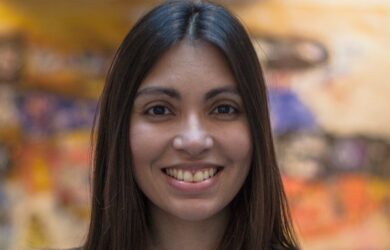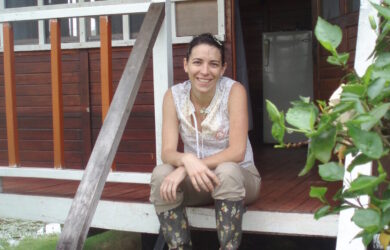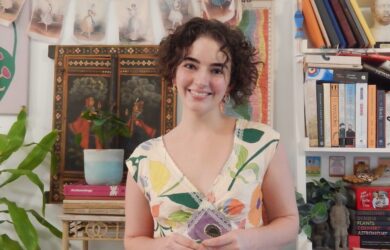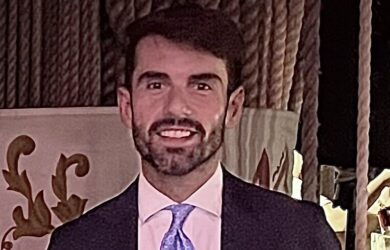Study suggests birds copy their peers to try new foods, but only in risky circumstances at certain times of year.
This is the first time such biases have been found in the wild, and suggests that social influences would likely shape how jackdaws exploit man-made foods year round.
Alison Greggor
Birds will try new foods by copying their peers, but will only do so in dangerous places at certain times of year, according to a new study which will be useful as humans continue to encroach on their natural habitats.
The study, Contagious risk taking: social information and context influence wild jackdaws’ responses to novelty and risk, is published in Scientific Risks.
Alison Greggor [2012], lead author on the paper and a Gates Cambridge Scholar doing a PhD in Experimental Psychology, says: “Wild animals increasingly encounter man-made food and objects. We intuitively expect animals to approach certain combinations of food and objects, such as crisps in a shiny packet on the pavement, but we equally expect them to avoid other combinations, like reflective crop deterrents in a field. How they react to these different types of novelty is crucial to their survival, but we know little about how animals learn to discriminate beneficial from dangerous novelty in the wild.”
The researchers, who included Professor Nicola Clayton at the University of Cambridge, Guillam E. McIvor, an Associate Research Fellow at the University of Exeter, and Dr Alex Thornton from the University of Exeter, wanted to investigate how social learning might allow animals to capitalise on the risk-taking of others. They studied the actions of jackdaws. Like other birds in the crow family, jackdaws often rely on human-produced food, but are also persecuted because of their perceived conflict with humans. The researchers though social learning might be particularly important in allowing them to survive alongside humans.
They tested how often wild, individually marked jackdaws were influenced by social cues to consume novel, palatable foods and to approach a startling object across both non-breeding and breeding seasons. They found that in both seasons jackdaws were more likely to consume novel foods after seeing another jackdaw do so. In contrast, jackdaws only copied others in eating near the object during breeding season. The evidence suggested that, despite the potential value of social information, jackdaws did not follow social cues consistently. Instead, whether risk-taking was contagious depended on the type of information and the time of year.
Alison comments: “This is the first time such biases have been found in the wild, and suggests that social influences would likely shape how jackdaws exploit man-made foods year round. Meanwhile they may be more likely to learn socially about man-made objects at certain times of year.”












